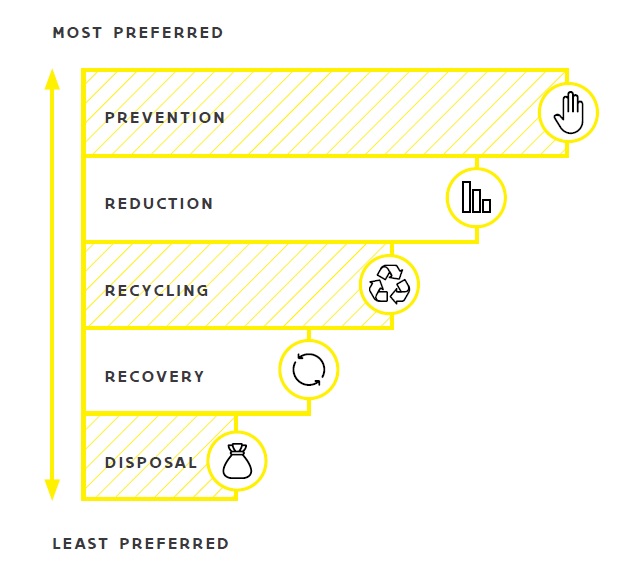OVAM main policy principles
Principles of self-sufficiency, proximity & polluter pays drove the first waste policies
Self-sufficiency and proximity principles were applied to all residual household waste and all industrial waste collected with household waste. This meant that this waste could not be exported for landfilling or incineration. As a result, most residual household and industrial waste were incinerated in Flanders. The system of landfill and incineration fees was based on the polluter pays principle.
Materials hierarchy: closing material loops and dematerialisation
After 2010, the focus shifted from waste to the management of materials across the entire value chain, to reduce the amount of materials used and to close material cycles. The replacement of the Waste Decree by the Materials Decree (2012) was a key step in moving from waste management to sustainable materials management and circular economy. It allowed for intervention further upstream and the development of a policy for the entire chain. Policies to stimulate waste prevention, reuse and separate collection became important.
The materials hierarchy is a new principle, with a clear order of priorities for materials handling, which is not limited to waste materials:

- Prevention of waste must be promoted, as well as sustainable production and consumption patterns.
- Preparation for re-use, e.g. minor repairs to or the cleaning of reusable goods.
- Recycling of waste and closing material cycles.
- Other forms of waste recovery, such as energy recovery and the use of materials as a source of energy.
- The disposal of waste, with landfill as the last option.
Sustainable soil and land management
The Soil Remediation Decree of 1995 made OVAM one of the first organisations in the European Union to introduce regulation that specifically aims at soil remediation.
We preserve our soils, ensure the availability of clean drinking water and boost the smart, circular use of soil and space by preventing new soil contamination, remediating historical contamination and stimulating the redevelopment of brownfields.
